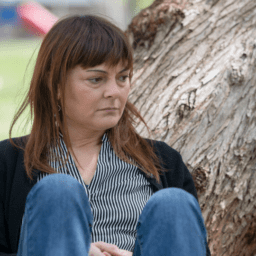Building your care team when living with young-onset Parkinson’s disease (YOPD) is essential to living well with YOPD. In many respects, building a YOPD care team involves the same elements that all people living with Parkinson’s may consider, but people with YOPD often approach building a care team with a distinct set of concerns related to family life, work, dating, finances, and more that are different from their older counterparts.
When building your care team, the most crucial thing to remember is that your willingness to advocate for yourself and pursue support from various caregivers is critical. You are the most important member of the team.
DECISIONS, ANXIETY, AND DEPRESSION: SEEK MENTAL HEALTH SUPPORT
One of the most challenging issues people with YOPD face is the number of potentially life-changing decisions that may come up. For example, in addition to making decisions about managing your symptoms, you may also have to decide whether to share information about your diagnosis with your employer, or you might consider changing your career entirely. You may also have to decide when—and how—to tell your family and friends about your diagnosis. Finally, given the number and variety of decisions on the table, you may benefit from working with a mental healthcare professional to help you clarify your priorities in managing your life with Parkinson’s.
Another issue a mental health professional can help with is time management. Many people living with YOPD are busy in their lives – you may be working, raising small kids, helping aging parents, etc. – and that can cut into the time you need to schedule visits with care providers and fit in other activities that will help you live well. Prioritizing time with a mental healthcare provider can help you plan and navigate these issues.
There are multiple types of mental healthcare providers and many online resources for finding and connecting with them, including Psychology Today’s search tool. It’s also a good idea to ask your primary care doctor for a referral to a mental health professional who works with people with chronic health concerns.
PRIORITIZE KEY PARTNERSHIPS
YOPD progresses gradually for many people, so some people living with YOPD may delay developing their care team. However, we recommend getting the people and resources you need in place early so that you don’t have to scramble when the need becomes urgent. In addition to working with a mental health professional, there are six key care provider relationships you may want to begin as soon as possible.
#1 – FIND A MOVEMENT DISORDER SPECIALIST
Establishing a relationship with a neurologist who treats Parkinson’s, referred to as a movement disorder specialist (MDS), is an important step. Parkinson’s has many symptoms, and YOPD often presents differently than later-onset Parkinson’s. Therefore, seeing a physician aware of the full range of possible Parkinson’s symptoms is essential.
Another reason to see a specialist is that they’re likely to be familiar with different treatment options and current treatment recommendations, which may be uniquely suited to people with YOPD.
Moreover, because Parkinson’s can have far-reaching motor and non-motor symptoms, and because so many of these symptoms might also arise from causes other than Parkinson’s, it’s helpful to have a specialist who is familiar with the details of Parkinson’s symptoms and medications.
For example, many people begin to have changes in their vision in their 40s and 50s, which can be difficult to distinguish from vision changes brought on by Parkinson’s. Another example relates to menstruation. Your menstrual cycle can result in diminished efficacy of typical Parkinson’s medications. Having a specialist on your care team who understands YOPD and can help coordinate care with other providers, such as a neuro-ophthalmologist or gynecologist, can help ensure you receive the best care possible.
When looking for a Parkinson’s specialist, one option is to find a movement disorder specialist. The International Parkinson and Movement Disorder Society (IPMDS) has a Movement Disorder Specialist Finder Tool, although not all physicians appear in the results. The IPMDS has over 11,000 members, but if you don’t find one in your area using this tool, you can check with your primary care doctor, consult the local health department, or call local neurology clinics to see if they can recommend someone. You can also reach out to an Ambassador if one is in your local area or state, and they may be able to help you find someone to fit your needs.
It’s also important to note that some neurologists who are not movement disorder specialists are just as familiar with providing care for people with Parkinson’s as their MDS colleagues.
Another consideration when establishing care with a Parkinson’s specialist is that people with YOPD often live many decades with Parkinson’s, and you may have a long-term relationship with this doctor. With that in mind, before scheduling an appointment with a Parkinson’s specialist, list the traits you want your ideal Parkinson’s specialist to have.
For example, consider whether you want a physician who has been practicing for a long time or would prefer someone earlier in their career. Consider whether you want a physician open to recommending clinical trial participation or prefer someone more likely to stick closely to the usual standards of care. Do you want a physician who will approach your visits in a conversational manner, or would you prefer someone more assertive? Do you want to be in and out of your appointments quickly, or do you prefer a physician who is willing and able to move slowly through your appointments?
After making your list, if you are lucky enough to have multiple specialists near you, when you call to make an appointment, seek to learn from the office staff which specialist is most likely to match your preferences.
Still, even after doing all that, you may not be satisfied when you meet your new provider. If that’s the case, make an appointment with a different care provider if you have other options. And even if there’s only one Parkinson’s specialist in your area, knowing what you want from your relationship with this care provider can help you prepare for and get the most out of your future visits.
#2 – KEEP YOURSELF ACTIVE WITH PHYSICAL AND OCCUPATIONAL THERAPY
Because YOPD progresses slowly for some people, a person living with YOPD might overlook the value of establishing a relationship with a physical or occupational therapist. There are two main reasons this is a mistake.
First, preventative therapy and exercise can help manage symptoms by improving strength and flexibility. Second, it can be helpful to have an established partnership with a therapist who has data about your physical capabilities before changes—whether related to Parkinson’s or some other cause—occur in the future. This familiarity can help a therapist provide better care and optimize treatment plans.
Another consideration is that seeing an occupational therapist can help improve productivity and pain-free time at work for people with YOPD. Occupational therapists can help with ergonomic adjustments and other occupational factors that might be affected by Parkinson’s, and there is evidence that working with an occupational therapist can improve your quality of life.
#3 – STAY SOCIAL WITH SUPPORT GROUPS
Another essential part of any comprehensive care team is a peer support group. There are many YOPD support groups available online and in-person. Participation in these groups (including our Living with Parkinson’s Meetup) can be a great way to connect with and learn from people who may have similar experiences and challenges to the ones you face. Moreover, having a solid social network is integral to living well, Parkinson’s or not.
#4 – GENETIC TESTING: POSSIBILITIES FOR NEW TREATMENTS
Another complicated question that people with YOPD often face is whether they should pursue genetic testing. There are many layers to this consideration; only you can decide if you wish to pursue testing. Here are a few things for you to consider.
- Compared with people who develop Parkinson’s later in life, there’s an increased likelihood that people with YOPD will have a genetic variant related to the development of Parkinson’s.
- Some clinical trials only enroll people known to have a particular genetic variant. Some of these trials are for novel therapeutic drugs.
- Some genetic test results may provide valuable information if you are considering DBS as an advanced therapy.
The area of genetics and Parkinson’s points to another reason you might want to see a neurologist who is familiar with Parkinson’s: they may be more familiar with the current state of research into Parkinson’s, as well as what clinical trials may be enrolling or upcoming.
#5 – CLINICAL TRIALS: CUTTING-EDGE SCIENCE AND MORE TIME WITH SPECIALISTS
Many people in the Parkinson’s community enjoy taking part in clinical trials. We know a few who have been involved in over 50! If you’re interested, here are a few facts to remember.
- Some trials are only open to those who have not begun taking Parkinson’s medications. Many people with YOPD experience mild symptoms and may be able to delay treating their Parkinson’s symptoms with little impact, but the decision to delay treatment should be made carefully and in consultation with your medical care team. We always say that a good time to start is when your Parkinson’s begins negatively impacting your quality of life.
- The number of people with YOPD is relatively small, so participation in trials can be of exceptionally high value to researchers. Your participation may help speed up advancements in treatments and our understanding of Parkinson’s.
- When you participate in a trial, you may have more frequent contact with knowledgeable clinicians than you are likely to have otherwise. These additional touchpoints can be helpful, especially around the time of your diagnosis when you likely have a lot of questions about Parkinson’s.
Of course, deciding to participate in a clinical trial is a significant and deeply personal one. Having a solid medical care team in place early on will allow you to consult those best positioned to help you.
#6 – REMEMBER YOU
As you build your care team, remember that YOU are the most critical member of the team. Asking questions, seeking answers, and advocating for yourself by pursuing the best and most thorough care can help you live well every day!
 Join Our Peloton Club
Join Our Peloton Club
Our educational content is made possible because of the monthly donors in our Peloton Club. Want to become a member and help us continue to create the resources people need to live well with Parkinson’s? Learn more and register to become a member here. (You’ll get a cool gift if you do!) It’s as easy as can be to set it and forget it.

















